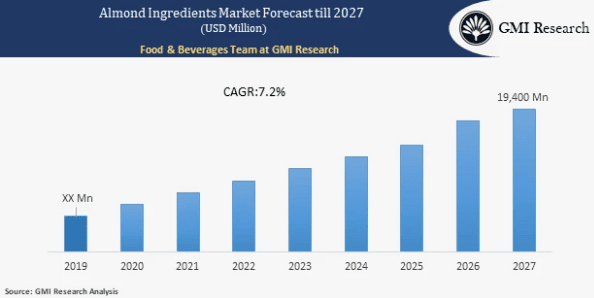
Almonds are a versatile and nutritious food, rich in healthy fats and protein. They are low in carbohydrates, making them a convenient ingredient, or snack in cooking. Almonds are accessible in different forms, including raw, salted, unsalted, and roasted. Their versatility extends to being transformed into almond milk, almond butter, or ground into almond meal, offering a variety of culinary possibilities.
Research suggests that integrating nuts into a frequent diet may contribute to increased heart health and other health benefits. Choosing almonds as a daily snack is a wise choice, given their rich content of fiber, protein, and chief micronutrients such as iron, and Vitamin E. Almonds, proposing a combination of protein and unsaturated fats, are even comprised in some top post-workout dietary supplements. Their nutritional profile makes them an adaptable and favorable addition to a balanced diet.
Both raw and roasted almonds are free from sugar and sodium, making them an essential choice for individuals with a history of diabetes, or hypertension, or those aiming to decrease their intake for different reasons. Discovering the nutritional facts of almonds and understanding the potential benefits of incorporating them into one’s diet can deliver valuable insights into making health-conscious food choices.
Market Size
Almond Ingredients Market growth and size was valued at USD 9.1 billion in 2021 and is forecast to touch USD 19.2 billion in 2029, and the market is predicted to rise at a CAGR of 9.8% in the coming period. The almond ingredient market is predicted to witness growth propelled by factors including growing health consciousness among customers, heightened awareness concerning lipid transfer proteins in almond ingredients, a surge in need for almond and indehiscent fruit snack bars, and significant investments by key players in the development of high-performance ingredients. These trends collectively contribute to the positive market growth of the almond ingredients market in the near future.
Health Benefits of Almond Ingredients
Almonds are extensively promoted for their nutritional and health benefits which fosters the almond ingredients market size. Scientific studies have conveyed beneficial insights into the different ways that consuming almonds may progressively impact human health.
- Decreases Heart Disease Risk: A 2016 review of 29 studies suggested that incorporating 28 grams of nuts daily, as part of a diet low in saturated fat and cholesterol, could potentially lower the risk of heart disease. In the case of almond consumption, this benefit can probably be attributed to their capability of lipid-lessening monounsaturated body fat, vitamin E, and fiber. Almond ingredients are loaded with heart-healthy phytonutrients, including plant sterols and flavonoids, which significantly render antioxidant advantages. To increase the consumption of these nutrients, it is suggested to consume almonds with their skins, as flavonoids are strengthened in the skin. This underscores the potential health benefits of enjoying almonds in their whole form.
- Develop and manage the Diabetes Risk: Certain studies propose that higher magnesium intake is linked to a reduced risk of developing diabetes. Given that almonds are a good source of magnesium, they may contribute to this potential benefit. However, it is important to note that while almonds deliver magnesium, there may be additional aspects propelling the prevention of diabetes, and evidence supporting the direct consumption of almonds for this determination may differ.
An example is a study including adolescents and young adults at the chance of diabetes, which observed that those who consumed 56 grams of almonds daily observed a reduction in LDL, HbA1c, cholesterol, and levels of total cholesterol over 12 weeks. In addition, other studies have advised that almond consumption may help persons with diabetes in supervising blood sugar levels and developing lipid profiles. These findings indicate the potential positive effects of almonds in the context of diabetes management.
- Probably deliver metabolic benefits: A 2021 research review proposed that almonds could provide metabolic benefits. The study indicated that diets incorporating almonds led to participates feeling less hungry and more satiated, ultimately growing resting energy expenditure. In addition, almonds contributed to a small but considerable decrease in body weight and fast mass compared to other nuts. These findings highlight the potential positive impact of almonds on metabolic, factors and weight management.
Possible Risks of Almonds
For individuals witnessing difficulty swallowing or having a swallowing disorder, the hard texture of almonds may pose a choking hazard. In such cases, it is suitable to consult with a healthcare expert before consuming almonds or almond products, such as almond milk or almond butter. Your doctor can give guidance on whether these nuts are harmless for you to include in your diet, confirming your complete well-being and safety.



